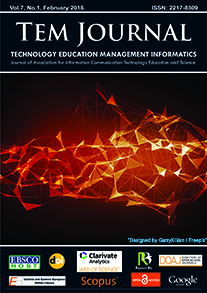School Self-Concept of Children in the System of Lower Secondary Education in Slovakia - Comparison of Slovak and Roma Children
School Self-Concept of Children in the System of Lower Secondary Education in Slovakia - Comparison of Slovak and Roma Children
Author(s): Michal Čerešník, Miroslava ČerešníkováSubject(s): ICT Information and Communications Technologies
Published by: UIKTEN - Association for Information Communication Technology Education and Science
Keywords: School Self-Concept; Roma Child; Social and Cultural Difference
Summary/Abstract: In the paper we compare a school self-concept in Slovak and Roma children in the system of lower secondary education. As a method of diagnostics we used the Student’s Perception of Ability Scale (SPAS, in Slovak Dotazník sebapoňatia školskej úspešnosti detí) by Matějček, Vágnerová (1992), who are the authors of the original Czech and Slovak standardisation. We used the innovated form of the scale (Čerešník, 2013). The results of the statistical analysis show significant differences between the compared groups in the monitored indicators of the school self-concept. If we accept that the majority of Roma children come from socially disadvantaged environment then these children belong to children with special educational needs (according to the Act No. 245/2008). Thus, the worse school self-concept in Roma children is not a surprising result. This finding is valid, especially in the relation to possible subdeprivation or deprivation experience based on the deficiency of stimuli leading to saturation of physiological, social and psychological needs.
Journal: TEM Journal
- Issue Year: 7/2018
- Issue No: 1
- Page Range: 211-218
- Page Count: 8
- Language: English

